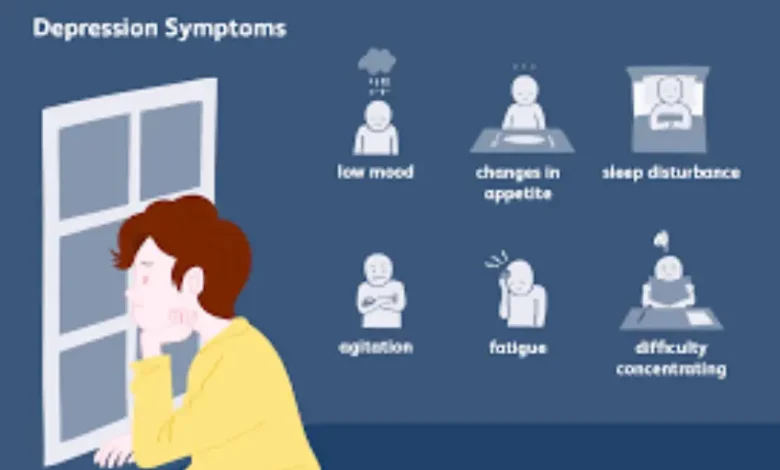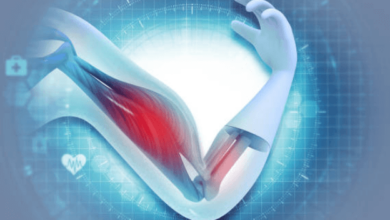Depression Symptoms – Spotting the Signs Early

Depression is a prevalent mental health condition affecting millions of people annually. It can be hard to know whether or not you or a loved one is depressed, but it’s essential to spot the signs early to get treatment.
Symptoms can vary from person to person, but the most important ones include a feeling of sadness or loss of interest in activities for more than two weeks. They may also involve a loss of appetite or sleep disturbances.
Feelings of Hopelessness or Helplessness
It’s normal to feel sad and lonely occasionally, but when those feelings are so overwhelming that they interfere with your daily life, you might have depression.
A new study suggests that depression symptoms can be recognized early and help prevent recurrence or relapse. But how can you spot the signs?
Researchers have identified a set of “prodromes” — or signs of an oncoming depression — that are relatively consistent among patients.
The first symptom is hopelessness, which involves losing belief that things can get better in the future. This happens because the person is “depressed in a cognitive sense.” It’s a feeling that “there’s no way out, no hope of anything improving, no bright future ahead.”
Several things, including trauma or repeated exposure to an uncontrolled stressor, can cause hopelessness. It can also be the result of feelings of worthlessness. Often, people with desperation don’t seek treatment for their depression because they believe it isn’t a severe problem.
Difficulty Concentrating or Making Decisions
Depression affects how people think, feel and act. It can make it challenging to get through the day and interfere with relationships, work and study.
Some of the symptoms of depression can be subtle and difficult to spot. For example, people may suddenly lose interest in things they once enjoyed or start making decisions they would typically avoid.
Taking action is essential if a loved one displays some of these signs. Seeking help is the best way to prevent or treat depression.
Treatment can involve talk therapy, medication or a combination of both. Treatment can help you learn to cope with the feelings and behaviors that are associated with depression and lead to better overall health.
Feelings of Guilt or Worthlessness
Feelings of guilt or worthlessness are common signs of depression. It’s important to recognize these feelings early and seek help if you start to feel like they’re getting in the way of your daily life.
People with chronic guilt may also have trouble focusing and making decisions. They may even have difficulty remembering things, and they might also experience unexplained aches and pains.
Guilt can lead to other mental health disorders like obsessive-compulsive disorder (OCD) and depression.
While feeling guilty is a normal part of living, prolonged guilt can affect neurotransmitters in the brain responsible for feelings of worthiness and low self-esteem.
Studies show that feelings of worthlessness can also lead to a worse state of physical health. A survey of 2,000 Chinese men 65 and older found that those who reported feelings of worthlessness were likelier to die over five years than those who didn’t feel this way.
Feelings of Worthlessness
If you’ve lost interest in things you used to enjoy, that may be a sign of depression. You might start to feel a lack of pleasure in activities such as sports, music, sexual activity, or hobbies, according to the National Institutes of Mental Health.
You might also need help enjoying these pleasurable activities for more extended periods. This may result from decreased appetite, sleep, or energy levels.
It’s not uncommon to feel down occasionally, but when hopelessness and despair become persistent and severe, that could be a sign of depression.
Spotting the signs early is essential so you can get help if needed. If you notice someone you know is experiencing any of these symptoms, it’s best to seek treatment immediately.
Feelings of Hopelessness about Your Body
Feelings of worthlessness or hopelessness about your body can indicate depression. They may develop into a prolonged negative mood and impact your physical health, especially if you feel this way for over two weeks.
You can spot the signs of depression early by looking for common symptoms, like feelings of worthlessness or hopelessness. This can help you identify if you need to seek the help of a mental health professional.
It’s also important to remember that these symptoms can vary depending on the type of depression you have. If you’ve been experiencing a lot of these symptoms for more than two weeks, it’s recommended that you see your doctor.
It can be challenging to recognize the signs of depression, but if you or a loved one are suffering from these symptoms, seeking help immediately is essential. Depression can be a severe condition and affect how you live your life.







